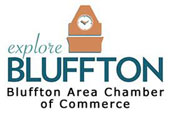According to Ada resident LeAnn Pryor, BBBS of West Central Ohio program director, the common denominators among Littles are single-parent families and a lower income. Still, there are many unique reasons for participation.
_____________________________
By Barbara Lockard
FROM ADA ICON - What do kids from lower income, single-parent families have in common?According to Big Brothers Big Sisters of America, they all possess an incredible gift … potential!
“Big Brothers Big Sisters of America defends, inspires and ignites the potential of youth every day,” is the opening line of a public service announcement for the organization.
John Neville, executive director of Big Brothers Big Sisters (BBBS) of West Central Ohio, is jumping on the bandwagon.
During January 2020, designated as National Mentoring Month, Neville and his staff will be actively recruiting mentors to help realize the potential in youth from Hardin, Putnam and Allen counties.
With offices located in Lima, Kenton and Ottawa, BBBS of West Central Ohio currently serves about 300 kids in its three-county area.
“We have approximately 500 match relationships going,” Neville added. “Our primary focus is the one-on-one program, but our school-based program is very active as well.”
Mentoring in the Schools
As the name implies, the school-based program takes place in the schools with mentors that are usually older high school students. “Bigs and Littles” meet weekly for 45 minutes and the program has delivered measurable, positive results.
“The kids who participate may not be among the most popular or high academic achievers. They feel left out,” said Neville. “The school-based program gives them a sense of belonging to their school.”
Participation also increases self-confidence and enhances relationships with teachers and peers. Statistics gathered from teacher surveys in all three counties involving 144 children bear this out, with 71 percent showing increased self-confidence; 51 percent improving their academic performance and 64 percent having a better sense of belonging to their school.
Mentors in the Community
The community-based program focuses on the traditional, one-on-one relationship that develops between an individual child and his or her adult mentor. The community-based program began when the organization began, while the school-based program was developed in the early 2000s.
Like many organizations that recruit volunteers, Big Brothers Big Sisters of West Central Ohio is experiencing a lack of male mentors. Neville speculates that men may think mentoring is too “touchy, feely.”
“It used to be that only men worked full time, so we used that as a reason,” added Neville. “But our women mentors are employed, and we are still able to recruit more of them.”
Adults who are hesitant to apply for a match should understand that they will not be alone when it comes to building a relationship with their little brother or sister.
A staff member works directly with each match and keeps contact with the child, parents and mentor. The staff person provides advice and even ideas on things to do.
Neville said that the organization also has regular activities for Bigs and Littles. This past year, BBBS purchased tickets to the Allen County Fair, sponsored horseback riding at an area farm and visited Suter’s Corn Maze in the fall.
The process to become a community-based mentor isn’t complicated. The adult completes an application and then participates in a lengthy interview with staff. A criminal background check is required, and references are contacted. If the organization deems it necessary, a staff member can visit the mentor’s home.
“Child safety is our threshold of concern,” added Neville.
A Typical “Little”
According to Ada resident LeAnn Pryor, BBBS of West Central Ohio program director, the common denominators among Littles are single-parent families and a lower income. Still, there are many unique reasons for participation.
“We have a child with a medical issue that’s resulted in a lack of self-confidence,” Pryor said. “We’ve paired up a child whose mother has breast cancer with a high school student who had lived through the cancer experience with her own mother.”
Pryor added that they have also matched a child whose father is deployed and have even paired some socially awkward kids with adults who also feel uncomfortable in social situations.
She’s proud of the longevity that’s developed in the program, adding that some of the high school seniors in the school-based program have continued into the community-based program so they could keep contact with their little brother or sister after graduation.
National Mentoring Month
A graduate of Ohio Northern University and the University of Wisconsin, Neville practiced law for 17 years before accepting his position with Big Brothers Big Sisters of West Central Ohio in 2000. During the past two decades, he feels there have been some changes, but the needs of the kids have basically stayed the same.
“They are in struggling homes that aren’t education-focused. They are falling behind in school. They need help and support,” he added.
BBBS of West Central Ohio receives some funding from United Way and holds annual fundraising events like Bowl for Kids’ Sake and Golf for Kids’ Sake.
Recently, the Governor’s Office of Faith-Based and Community Initiatives announced a Governor’s Grant Award to BBBS of West Central Ohio for up to $11,350. Neville said the proposal submitted was to initiate one new school-based program in 2020.
During January 2020, Neville and his staff are planning a big recruiting push with publicity on radio and television, new print materials, public speaking engagements and reaching out to area colleges and employers.
Mentors are definitely needed with 30-35 kids on the waiting list in Allen County alone. The organization is also working with Allen County Job & Family Services to see if mentoring might be effective with adults who are among the chronically unemployed.
Neville sums up his feelings about the value of mentors in one sentence.
“Our staff makes it fly, but our mentors are the heroes.”


